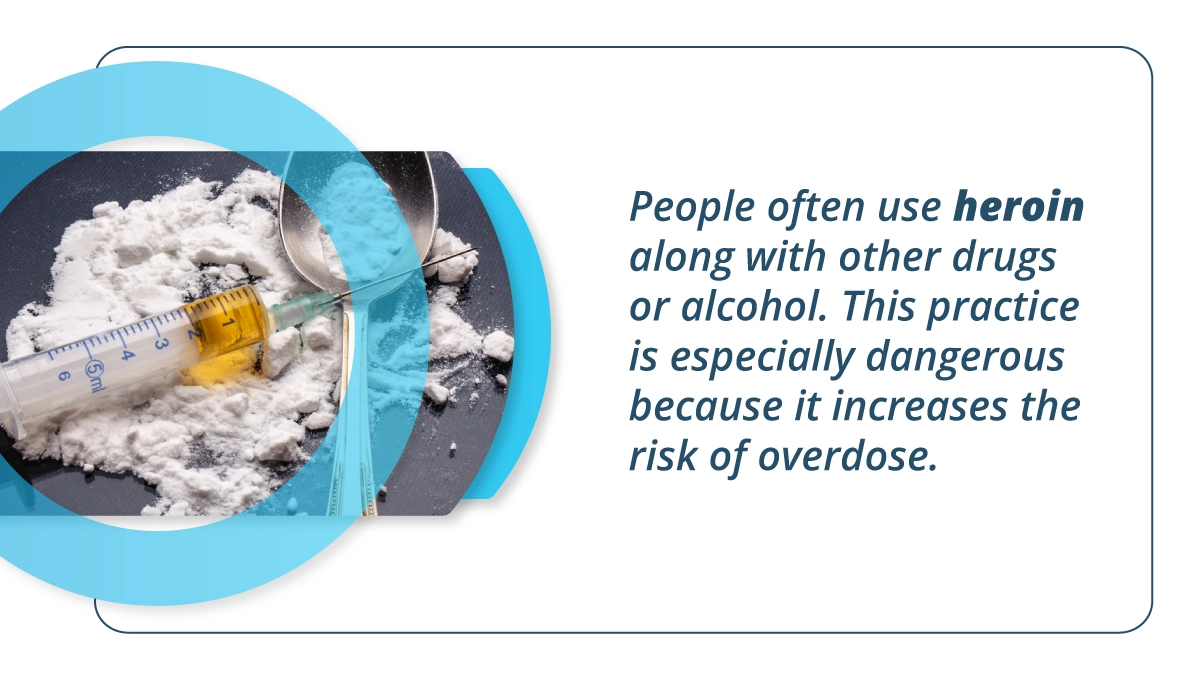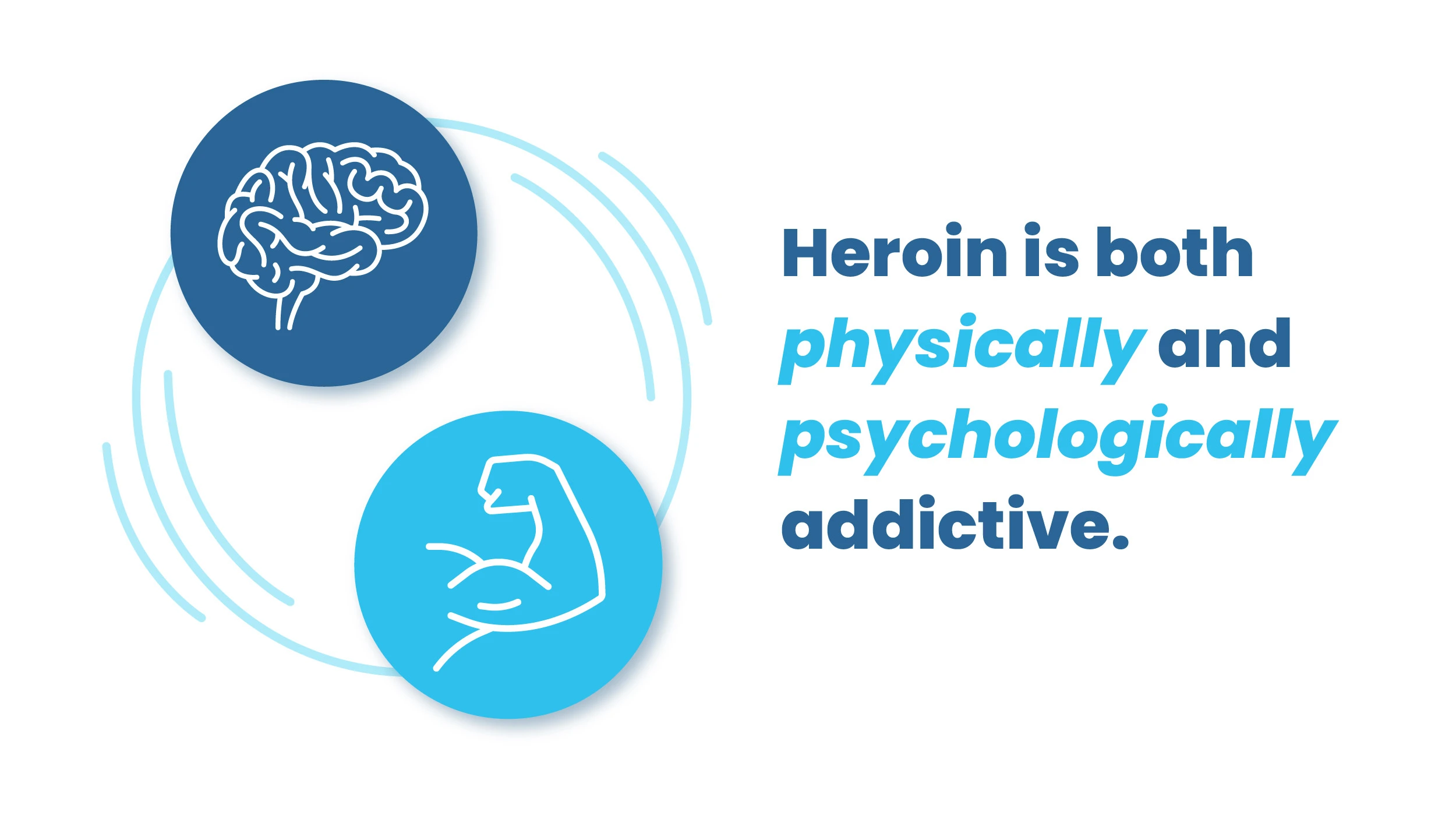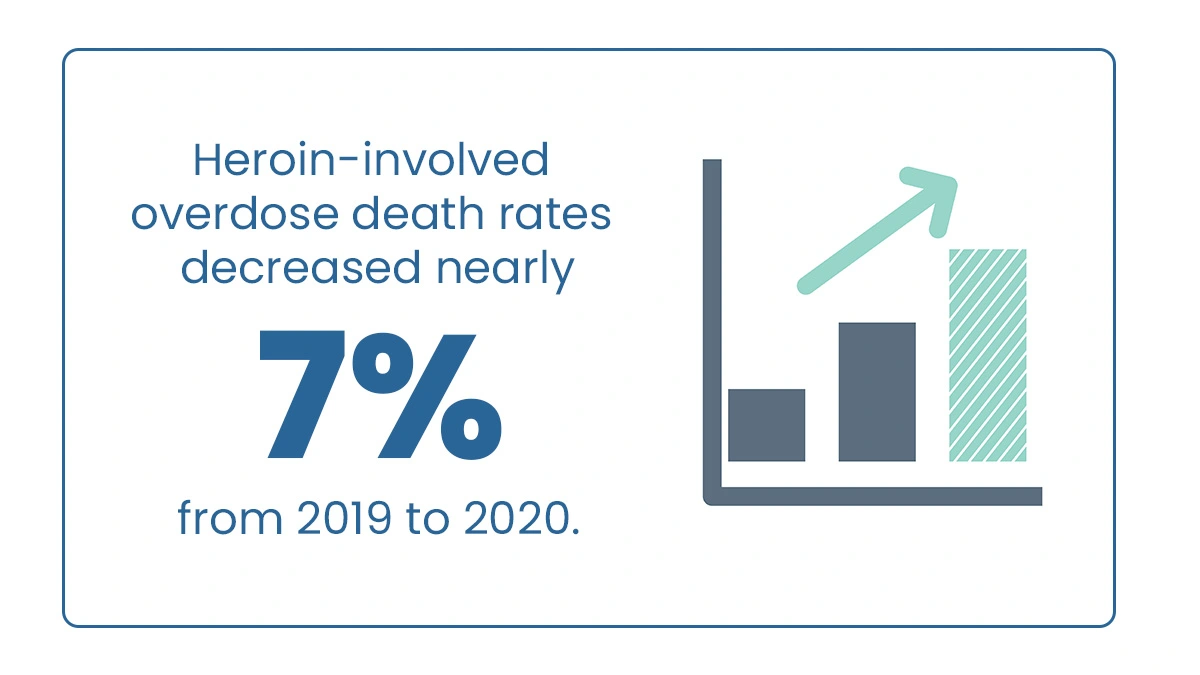Understanding the Heroin Epidemic in Arkansas
The heroin epidemic in Arkansas, like in many other states, has significantly impacted the population. The increased use of heroin has resulted in higher rates of overdose deaths, healthcare costs, and criminal activity related to drug trafficking.
One factor contributing to the epidemic is the use of prescription drugs. Many people who become addicted to heroin begin with valid prescriptions for opioid painkillers. These drugs have an accepted medical use but also have a high potential for abuse and dependence.
As a result, they are classified as controlled substances and are placed in different schedules based on their medical uses and potential for harm.
The heroin epidemic is having a devastating impact on Arkansans. The Haven Detox-Little Rock provides addiction treatment, education, and resources to prevent heroin abuse.
Treatment Services
The use of heroin is on the rise in Arkansas, and with it, the number of people struggling with heroin addiction. While there is no easy solution to overcoming addiction, several treatment services are available in Arkansas to help individuals overcome heroin addiction.
One of the most common treatment options is medication-assisted treatment (MAT). This type of treatment combines the use of FDA-approved medications, such as buprenorphine and naltrexone, with behavioral therapies and counseling to provide a “whole-patient” approach to treatment.
MAT is an effective treatment for heroin addiction, and it is available at several treatment centers across Arkansas.
Another treatment option is behavioral therapy. This therapy can help patients identify and change the behaviors contributing to their heroin use. Behavioral therapy is often combined with other treatment methods, such as medication-assisted treatment, to provide a comprehensive approach to treatment. Several behavioral therapy programs are available in Arkansas, and many offer services specifically for people struggling with heroin addiction.
In addition to medication-assisted treatment and behavioral therapy, there are also several 12-step programs available in Arkansas. These programs support and guide people struggling with addiction and can be an important part of recovery.
The most important thing to remember is that treatment for heroin addiction is not a “one size fits all” approach. Various treatment options are available, and the best treatment plan is tailored to the individual’s needs.

Key Takeaways
The heroin epidemic in Arkansas has significantly impacted individuals, families, and communities, resulting in increased rates of overdose, infectious diseases, and crime.
- There has been an increase in overdose deaths related to heroin and other opiates, methadone, and cocaine.
- The causes of the heroin epidemic in Arkansas are complex and include factors such as prescription drug abuse, poverty, and lack of access to healthcare and treatment.
- Treatment options for heroin addiction in Arkansas include medication-assisted treatment, behavioral therapies, and support groups like Narcotics Anonymous.
- Recovery from heroin addiction is possible, but it requires a comprehensive and individualized approach that addresses addiction’s physical, emotional, and social aspects.
You can get effective treatment to overcome heroin addiction at one of the best facilities in Arkansas, The Haven Detox-Little Rock. Call our confidential counselor at (501) 271-3342
Symptoms of Heroin Addiction
Heroin addiction is a serious medical condition that can cause significant physical and psychological harm. Some of the symptoms of heroin addiction include:
- Intense cravings
- Withdrawal symptoms, including nausea, vomiting, diarrhea, sweating, chills, and muscle aches upon stopping
- Changes in behavior, such as mood swings, irritability, and depression
- Physical symptoms include constricted pupils, slowed breathing, and decreased heart rate
- Serious health problems include infections, collapsed veins, liver and kidney damage, and overdose
When to Seek Treatment…
If you are experiencing any of the above-described signs or symptoms, it is important to seek professional help. Addiction is a chronic and progressive disease that can have serious consequences if left untreated.
A qualified addiction treatment professional can help you develop a personalized treatment plan that meets your unique needs and goals. Remember, it takes courage to seek help for addiction, and reaching out for help is the first step toward recovery. Don’t wait to seek treatment if you are struggling with heroin addiction.
If a Loved One Needs Help
If you have a loved one addicted to heroin, you may wonder how to help them overcome their addiction. Here are some things that you can do to help:
- Educate yourself about heroin addiction and its effects.
- Talk to your loved one about their addiction and express concern for their health and well-being.
- Encourage them to seek professional help from a counselor or treatment program.
- Offer your support and assistance in any way you can.
- Be understanding and patient as they go through the process of recovery.

Causes of Heroin Addiction
Addiction is a complex disease, and there is no single cause. Rather, addiction often results from genetic, environmental, and behavioral factors. Understanding the causes of addiction can help individuals and their loved ones better understand the nature of the disease.
You will also learn the importance of seeking professional help for treatment. Many factors can contribute to the development of heroin addiction, including:
Some studies found that genetics may play a role in the development of addiction. Individuals with a family history of addiction may be more susceptible to developing an addiction to heroin.
There are several reasons why family history is such a strong predictor of addiction. First, addiction is a disease that is passed down through families.
Second, addiction is often encouraged by environmental factors. Children who grow up in families with addiction are more likely to be exposed to addictive drugs and alcohol at an early age. This exposure increases the risk of addiction.
Many factors contribute to heroin addiction. One of the most significant is the addictive potential of the drug or other substances. Heroin is highly addictive; even people who use it can develop an addiction.
People addicted to heroin often suffer from withdrawal symptoms when they try to quit. These symptoms can be extremely uncomfortable, making it difficult to stick to a quitting plan. The withdrawal symptoms can also lead to relapse, which is one of the most difficult aspects of heroin addiction to overcome.
If you or someone you know is struggling with heroin addiction, help is available. There are effective treatment options available at The Haven Detox-Little Rock.

Risk Factors of Heroin Addiction
Heroin addiction is a serious problem with several potential risk factors. These include peer pressure, lack of supervision, and exposure to drugs and alcohol at a young age.
Many risk factors can lead to heroin addiction. One of the most significant is drug access. People with easy access to drugs are more likely to use them. This is especially true for young people who are experimenting with drugs for the first time.
One of the reasons that drug access is such a risk factor for heroin addiction is that it increases the chances that people will use the drug recreationally. People with easy access to drugs are more likely to use them for fun rather than medicinal purposes. This can lead to addiction and other serious problems.
Peer pressure is the influence that people your age can have on your behavior. It can be positive or negative, but it’s more often associated with negative behaviors like drinking, drug use, and risky sexual activity.
Peer pressure can be exerted in several ways, including:
• Direct pressure is when someone asks you to do something, such as trying a drug.
• Indirect pressure: This is when someone doesn’t directly ask you to do something but makes it clear that they think you should do it. For example, they might talk about how much fun they had while using drugs.
• Social pressure: This is when someone makes you feel like you’re not part of the group if you don’t do what they’re doing. For example, they might say, “Everyone’s doing it, so you should too.”
Yes, lack of supervision is considered a risk factor for heroin addiction. Adolescents and young adults who lack parental or other adult supervision are at a higher risk of experimenting with drugs, including heroin.
Studies have shown that individuals who use drugs like heroin at a young age are more likely to develop a substance use disorder later in life. This is because the adolescent brain is still developing and is more susceptible to the harmful effects of drugs.
Treatment for heroin addiction often includes a combination of detoxification, therapy, and 12-step programs.
Heroin addiction can have significant impacts on safety in various ways. Heroin can increase your risk of developing HIV or other bloodborne illnesses. People addicted to heroin are more likely to drive under the influence, increasing the risk of accidents.
The effects of heroin addiction on relationships are widespread and can be devastating. The addiction can cause problems with communication, trust, and intimacy. It can lead to financial problems and put a strain on the relationship.
Addiction can also lead to violence and abuse. The effects of heroin addiction on relationships can be difficult to overcome, but getting help and strengthening the relationship is possible.
The effects of heroin addiction on employment are both direct and indirect. The most direct effect is that because heroin is an illegal drug, using it can get you fired from your job.
In addition, heroin addiction can lead to absenteeism, as people with addictions may miss work to get and use drugs. Productivity also suffers, as people with addictions may be less able to focus on their work.
In the short term, heroin use can cause several physical side effects, including:
- Nausea and vomiting
- Constipation
- Dry mouth
- Itchy skin
- Increased sensitivity to pain
- Slow breathing
- Drowsiness
In the long term, heroin addiction can lead to many more serious health problems, including:
- Liver disease
- Kidney disease
- HIV/AIDS
- Heart infections
- Pneumonia
- Collapsed veins
- Abscesses
Heroin addiction can also have several negative effects on mental health, including:
- Anxiety
- Depression
- Paranoia
- Mood swings
If you or someone you know is struggling with heroin addiction, it’s important to seek professional help as soon as possible. Addiction is a serious condition that can profoundly impact physical and mental health. However, treatment makes it possible to recover and live a healthy, drug-free life.
Get Help
If you’re suffering from heroin addiction, getting help as early as possible is essential. Heroin addiction is a severe illness that can lead to many problems. Getting help as early as possible can significantly improve your chances of recovery. Call us to get started with treatment.
Our resources are available to help you overcome your addiction with evidence-based therapies and innovative treatments proven by medical science to effectively manage your addiction. Our admissions counselors can help you learn more about the disease and how to keep it out of your life. Contact us confidentially today.

Treatment
Heroin addiction is a serious problem that requires treatment. Many treatments are available, and the best one for each person depends on individual needs. Some common treatments for heroin addiction include counseling, medication, and rehab.
Medical Detox
Medical detox is the first step in overcoming your heroin addiction. It is a process in which your body is slowly and carefully cleansed of the drug. This can be done in a hospital or a residential treatment center. The time it takes to detox depends on how long you have been using heroin and how much you have been using.
Detox is not easy. You will likely experience withdrawal symptoms during the process. These can include nausea, vomiting, diarrhea, sweating, shaking, and anxiety. Withdrawal symptoms can be difficult to deal with, but they are not life-threatening.
Medical detox can help you through withdrawal and ensure you are safe and comfortable. A team of medical professionals will closely monitor you. They will give you medication to help with the symptoms and ensure you stay hydrated.


Dual Diagnosis Treatment
Dual diagnosis is the term used to describe when someone has both a mental health disorder and a substance use disorder. This can happen with any combination of mental health disorders and substance but is most commonly seen with anxiety disorders, depression, and substance abuse.
Treating mental health disorders and substance abuse is important because they can contribute to each other.
Someone with a substance abuse problem may have started using drugs or alcohol to cope with undiagnosed depression, or the obsession and isolation that comes with substance abuse can lead to depression. Mental health disorders and substance use disorders are deeply intertwined and must be treated together.
Residential Treatment
When it comes to addiction, there are a variety of treatments available. Some people opt for outpatient care, while others choose inpatient care, also known as residential treatment. Residential treatment is a live-in option that provides around-the-clock care and support for those struggling with addiction. This type of care is often more intensive than outpatient and can last for weeks or months, depending on the individual’s needs.
For those struggling with heroin addiction, residential treatment can be an effective option. Heroin addiction is a serious problem that can lead to several health complications, including overdose and death. Residential treatment can provide the intensive care and support needed to overcome addiction and avoid these serious consequences.


Adjunct Therapies
Adjunct therapies are an important part of treatment for heroin addiction. These therapies can help address addiction’s underlying causes and support recovery.
One of the most effective adjunct therapies is cognitive-behavioral therapy (CBT). CBT can help individuals identify and change the thoughts and behaviors contributing to their addiction. This type of therapy can be particularly helpful in addressing issues such as depression and anxiety, which are often co-occurring disorders in those with substance use disorders.
Other important adjunct therapies include group therapy, family therapy, and 12-step programs. You can get effective therapies, including veterans programs like trauma programs from The Haven Detox-Little Rock.
Overcome Heroin Addiction at The Haven Detox-Little Rock
The Haven Detox-Little Rock provides various services to help those struggling with heroin addiction. The first step is detox, which can be done in an inpatient or outpatient setting.
The next step is to participate in a 12-step program to help individuals overcome their addiction. The final step is to live in a sober living environment, which allows the individual to continue to work on their recovery while living in a safe and supportive environment.
Call us now at (501) 271-3342 to get more information about our services.




